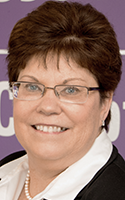By Deborah Jeanne Sergeant
 Many issues affect the health of older adults. Area experts weighed in on four of them.
Many issues affect the health of older adults. Area experts weighed in on four of them.
1.Hormone imbalance
“Every cell in our body has receptors for hormones,” said physician Leila Kirdani, board-certified in both metabolic medicine and family practice at Quality of Life Medicine in Rochester. “Hormone imbalance affects all areas of the body.”
She explained that as hormone levels decline, the cells won’t function as well. People experience unwanted changes in energy level, mood, aches and pains, short-term memory, cholesterol levels, organ function and bone strength.
Supplements and over-the-counter medication can help better balance hormones.
2.Alzheimer’s disease
The number of people in New York with Alzheimer’s disease is expected to increase by 15 percent in the next seven years, according to the New York State Alzheimer’s Association Coalition.
“As we look at risk reduction and prevention, one of the things we’re looking at is how can we detect this disease at its earliest form,” said Cathy James, co-chairwoman of the New York State Alzheimer’s Association Coalition. “We’re working on early detection at this point because we don’t have biomarkers. Clinical trials are going on to determine what those biomarkers are. Perhaps then, some of the medication that hasn’t shown efficacy at a certain stage would have more effect with individuals who are pre-clinical symptoms.”

Age and genetics represent leading risk factors for Alzheimer’s disease.
At present, nothing cures Alzheimer’s disease, but taking a few preventive steps may help delay onset for some of those who will develop the disease: exercise, maintaining physical health, proper diet, keeping the brain active and social interaction.
“Restorative sleep is also a factor that may recharge our brains,” James said.
3. Falls
For many frail elders, a fall begins a decline in health. A hip breaks. They’re laid up for weeks. They catch the flu. They slide into pneumonia. After a long recovery, they’re weaker, less sure on their feet and less likely to exercise for fear of falling. They begin losing muscle tone and balance skills slip, which are both factors that lead to subsequent falls.
Sarah Otis, health and wellness coordinator at Lifespan of Greater Rochester, holds degrees in exercise science and gerontology.
“Falls are not a natural part of aging,” Otis said. “Older adults do have control and can reduce that risk.”
She said that maintaining well-lit environments without hazards such as throw rugs, clutter and extension cords helps prevent falls.
People concerned about falling should consider taking fall prevention classes, as well as engaging in exercise that increases strength and balance
4. Depression
Christine Peck, licensed master social worker and director of care coordination at Lifespan, said she has read research indicating older adults who suffer depression experience higher emergency room admissions.

“Some of those ER admissions are preventable,” Peck said.
Depression also affects quality of life and activities of daily living. Its signs include changes in eating and sleeping patterns; persistent sadness lasting longer than three weeks; lack of interest in previously enjoyed activities; isolation; and feelings of worthlessness, hopelessness, apathy or anxiety.
“If community-based services can offer support to help with depression and other issues, hopefully we can help prevent some of those avoidable health crises,” Peck said.
Older adults are more prone to depression because of loss, grief, isolation and chronic, limiting health conditions.
“We recommend that an older adult speak with a primary care provider about what’s happening with them health-wise and emotionally,” Peck said.

